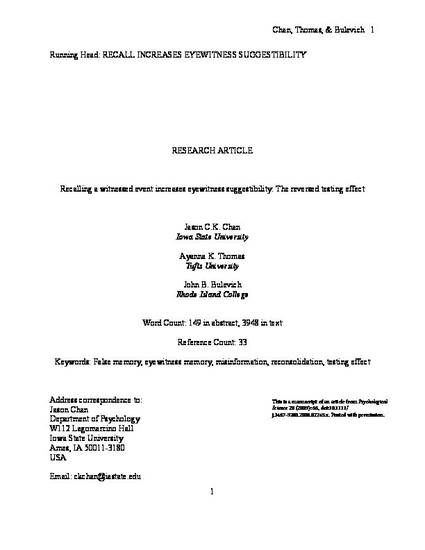
People's later memory of an event can be altered by exposure to misinformation about that event. The typical misinformation paradigm, however, does not include a recall test prior to the introduction of misinformation, contrary to what real-life eyewitnesses encounter when they report to a 911 operator or crime-scene officer. Because retrieval is a powerful memory enhancer (the testing effect), recalling a witnessed event prior to receiving misinformation about it should reduce eyewitness suggestibility. We show, however, that immediate cued recall actually exacerbates the later misinformation effect for both younger and older adults. The reversed testing effect we observed was based on two mechanisms: First, immediate cued recall enhanced learning of the misinformation; second, the initially recalled details became particularly susceptible to interference from later misinformation, a finding suggesting that even human episodic memory may undergo a reconsolidation process. These results show that real-life eyewitness memory may be even more susceptible to misinformation than is currently envisioned.
Available at: http://works.bepress.com/jason_chan/18/

This is a manuscript of an article from Psychological Science 20 (2009): 66, doi:10.1111/ j.1467-9280.2008.02245.x. Posted with permission.